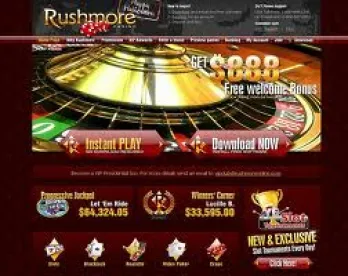The flurry of proposed legislative activity around loot boxes continues. State Rep. Rick Hansen (DFL-South Saint Paul) introduced H.F. 4460in Minnesota this week. H.F. 4460 would prohibit game purchases that result in random rewards or items that can be redeemed for random rewards for those under the age of 18. It would also require games to carry a prominent warning explaining the “risks” stating: ‘This game contains a gambling-like mechanism that may promote the development of a gaming disorder that increases the risk of harmful mental or physical health effects, and may expose the user to significant financial risk.’”
Loot boxes are a mechanic used in games to enhance game play, typically in free to play games. In most games, they can only be used within the game and cannot be cashed out. Players cannot win real money or anything of value. They are paying for entertainment. Under an informed analysis of relevant US gambling laws, this is not gambling. It is a player making a choice to pay money for a specific form of entertainment.
The problem with loot boxes is not that they are gambling, but that some regulators and legislators just do not really understand the issues. Understandably, to regulators and legislators who have not chosen to engage in such games and who would not chose to do so, they may not understand why someone would ever pay money for loot boxes or other virtual items. The potential for bad legislation due this factor seems to be growing.
Rep. Hansen said: “People are spending real money on random drawings in video games. Minnesota regulates gambling and when loot boxes meet the threshold to be considered gambling, then we need to treat it as such and regulate it too.” With all due respect, this makes no sense.
First, loot boxes (with no cash out) are not gambling. Nor does the proposed bill declare loot boxes to be gambling. Rather, it precludes offering them to kids under 18. If it was gambling it would be illegal for everyone.
Second, these are not random “drawings” in the traditional sense of the word. A drawing is defined as “the selection of a winner or winners in a lottery or raffle.” A drawing implies a lottery where many people pay money for a chance to win money or some other prize and typically one (or more) winning numbers or tickets are drawn to determine the winner(s). That is not how loot boxes work. With loot boxes, one person opts to obtain one loot box. That person will always get one or more virtual item(s), but will not know which until the loot box is opened. So there is no “drawing” to see whether a player wins or not.
Third, this proposed language of the bill highlights the failure to appreciate the prevailing, free to play business model for many video games. This bill targets retailers who sell video games with these features. Specifically, the proposed bill defines a “Retailer” as “a person who offers video games for sale, including resale by the purchaser, through any means including but not limited to sales outlets, catalogs, or by electronic means.” It further provides: “No retailer may sell to a person under 18 years of age a video game containing a system that permits the in-game purchase of (1) a randomized reward or rewards, or (2) a virtual item that can be redeemed to directly or indirectly receive a randomized reward or rewards.
Many of the games that offer loot boxes are not sold. They can be downloaded for free. The language of this proposed bill and the sponsors statement highlights that the business model around free to play games and monetization of virtual items remains unphatomable by some decision makers.
There is a growing need for communication and education on these issues.



 />i
/>i

